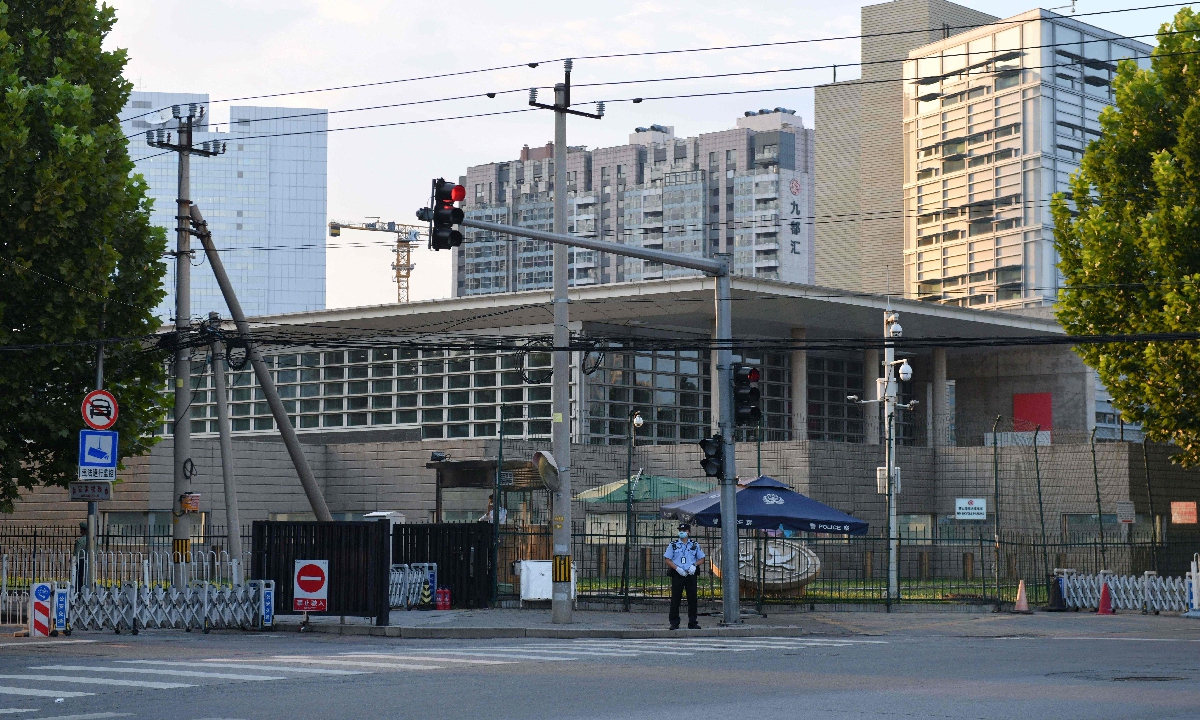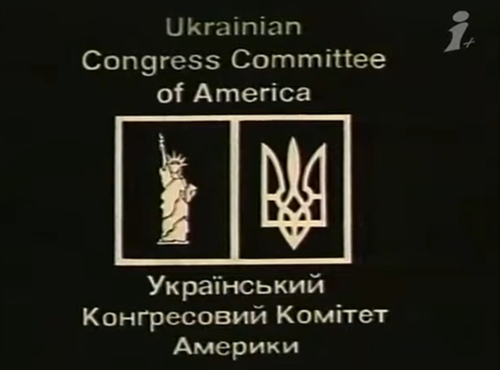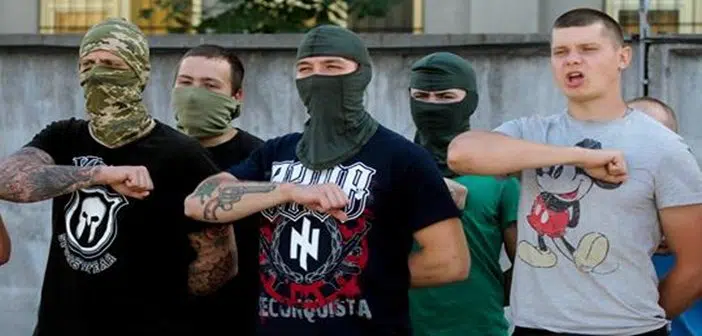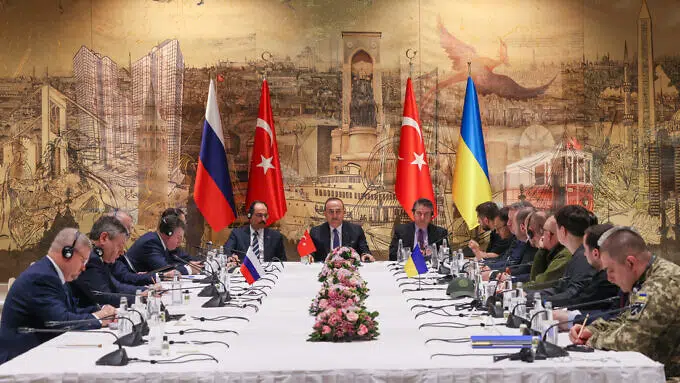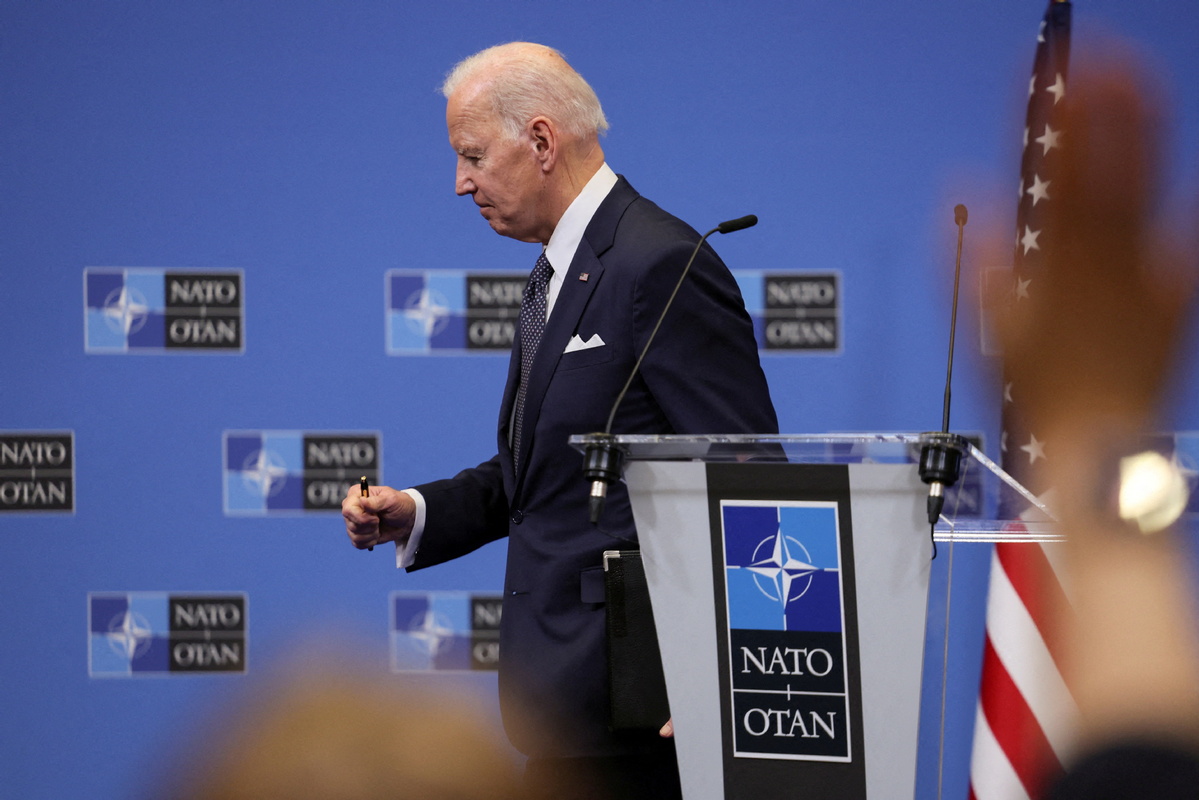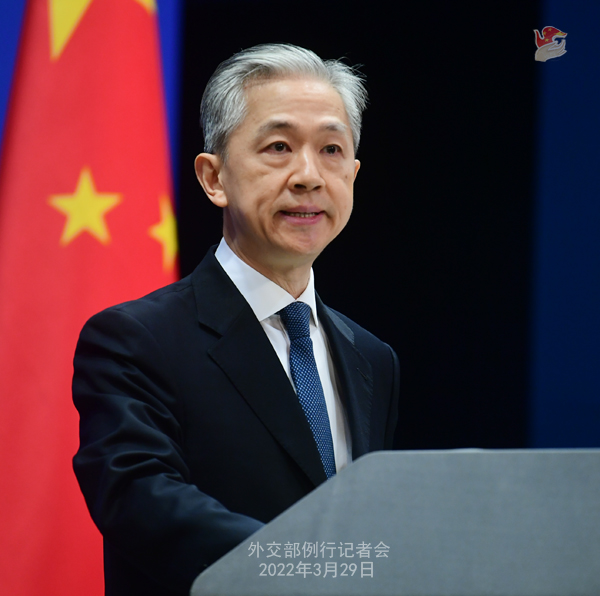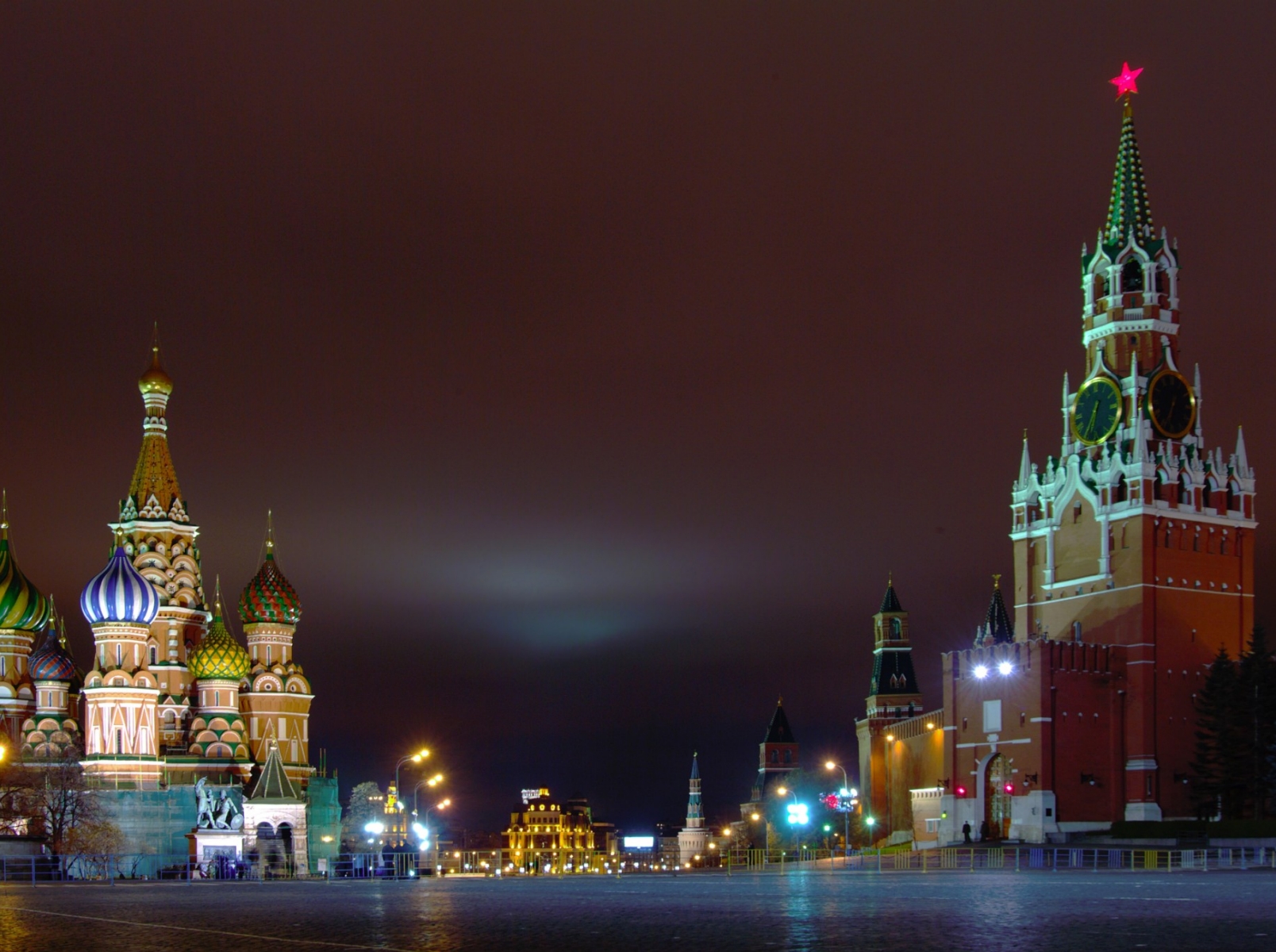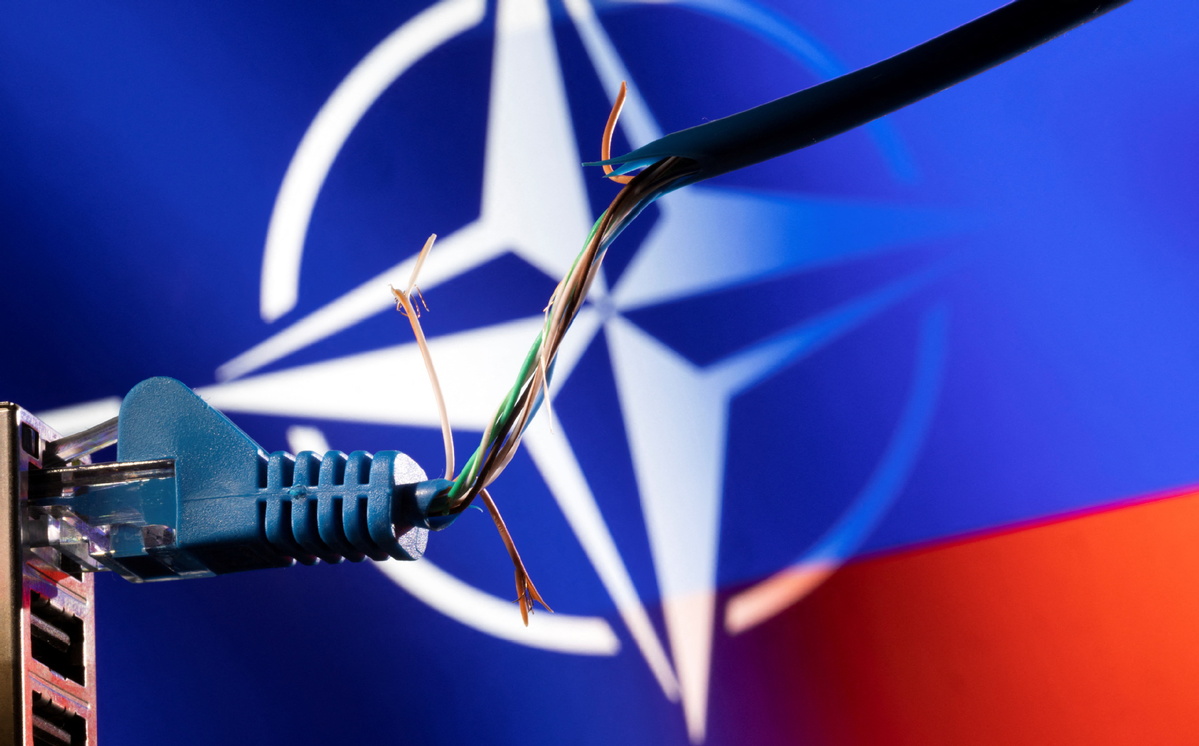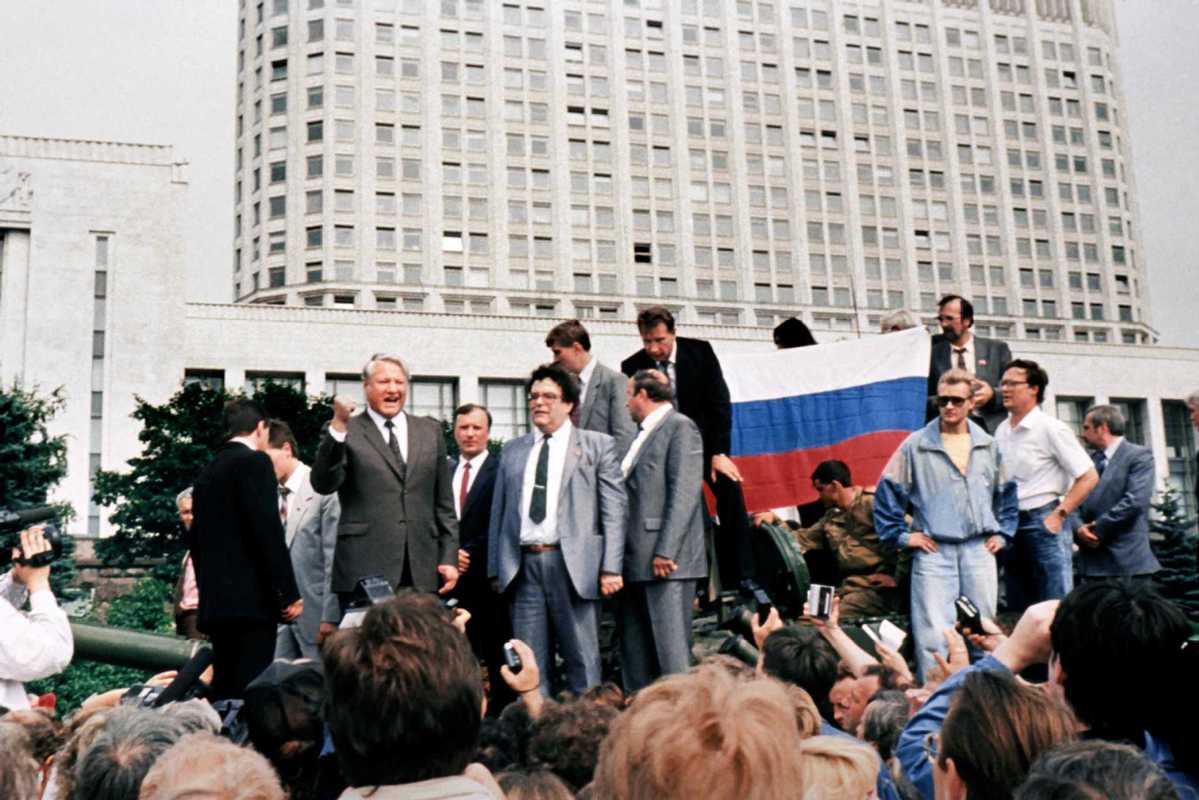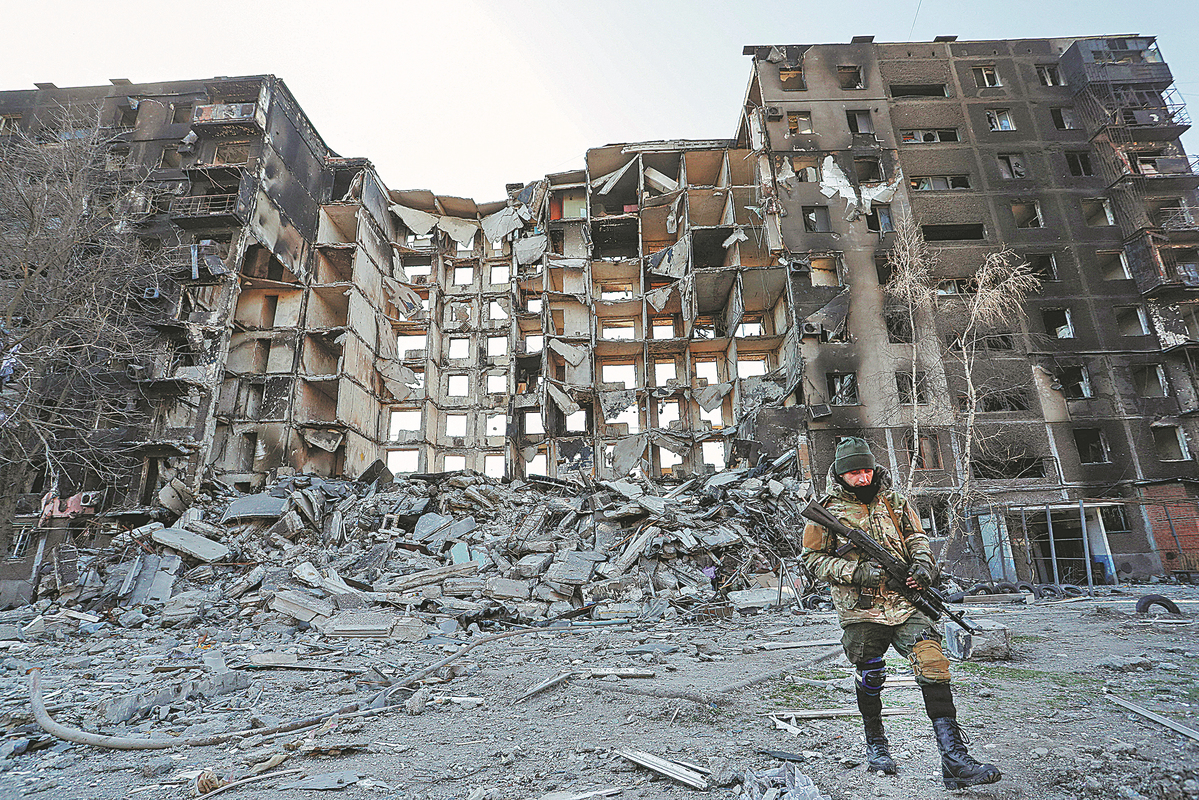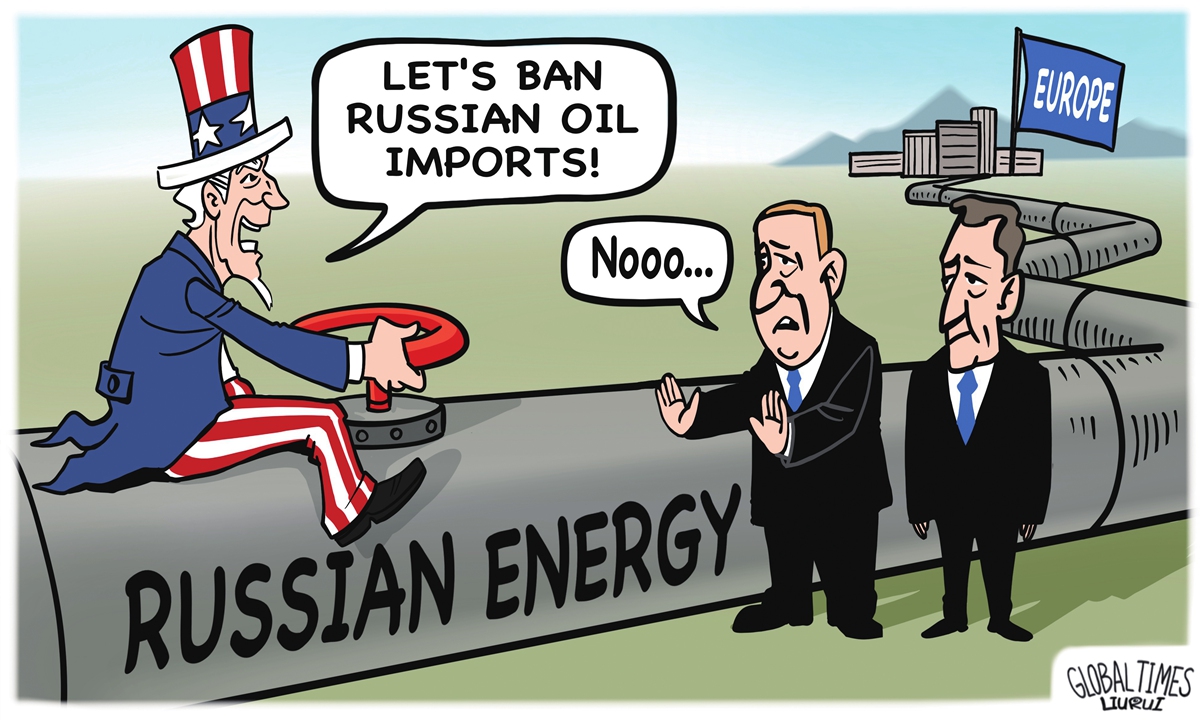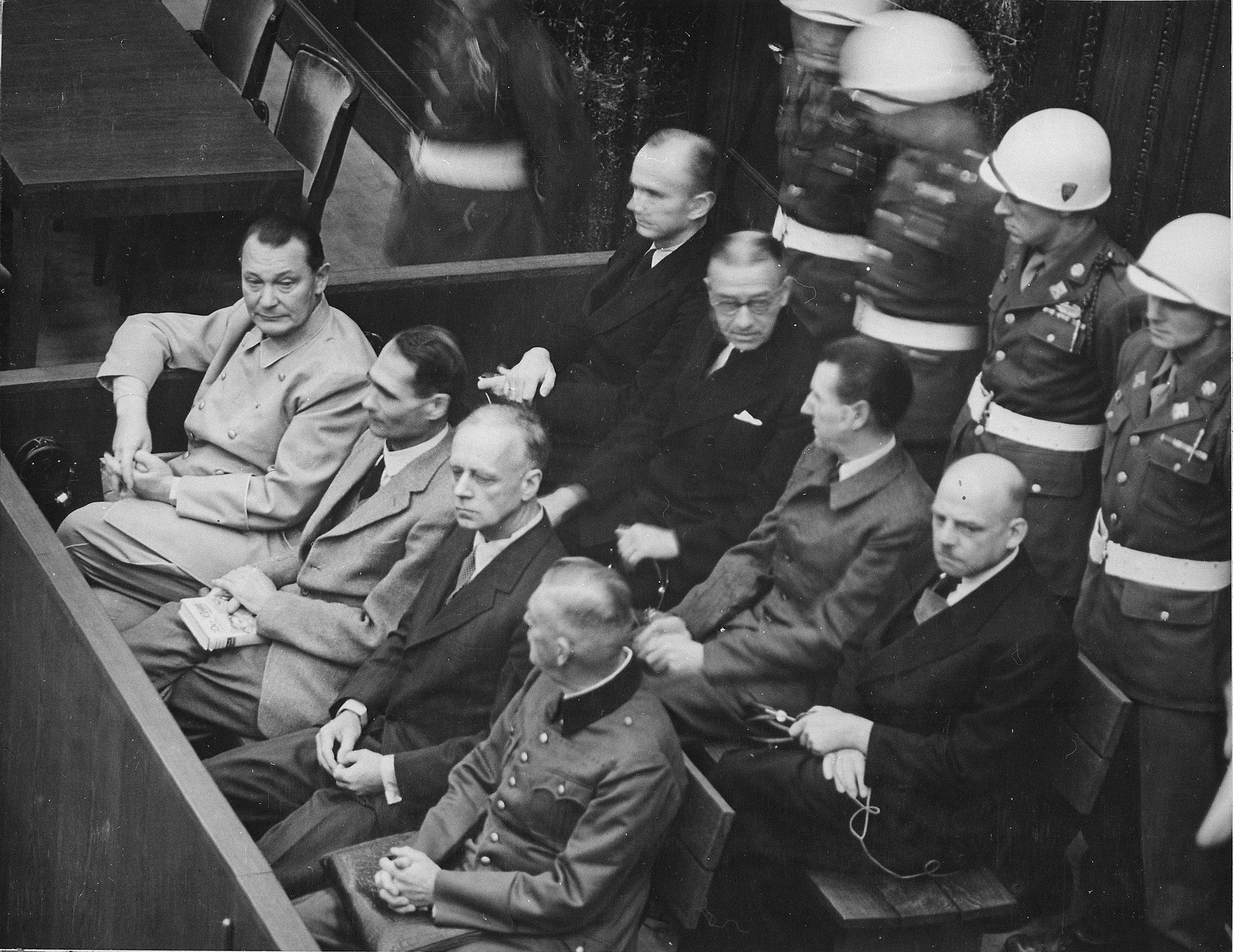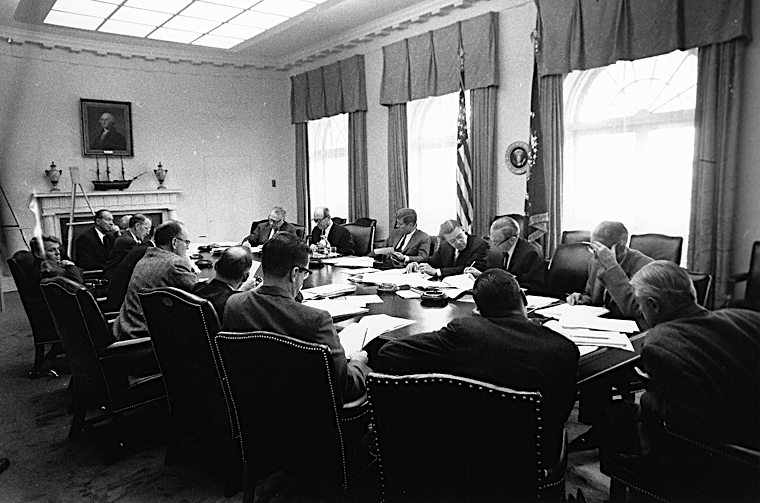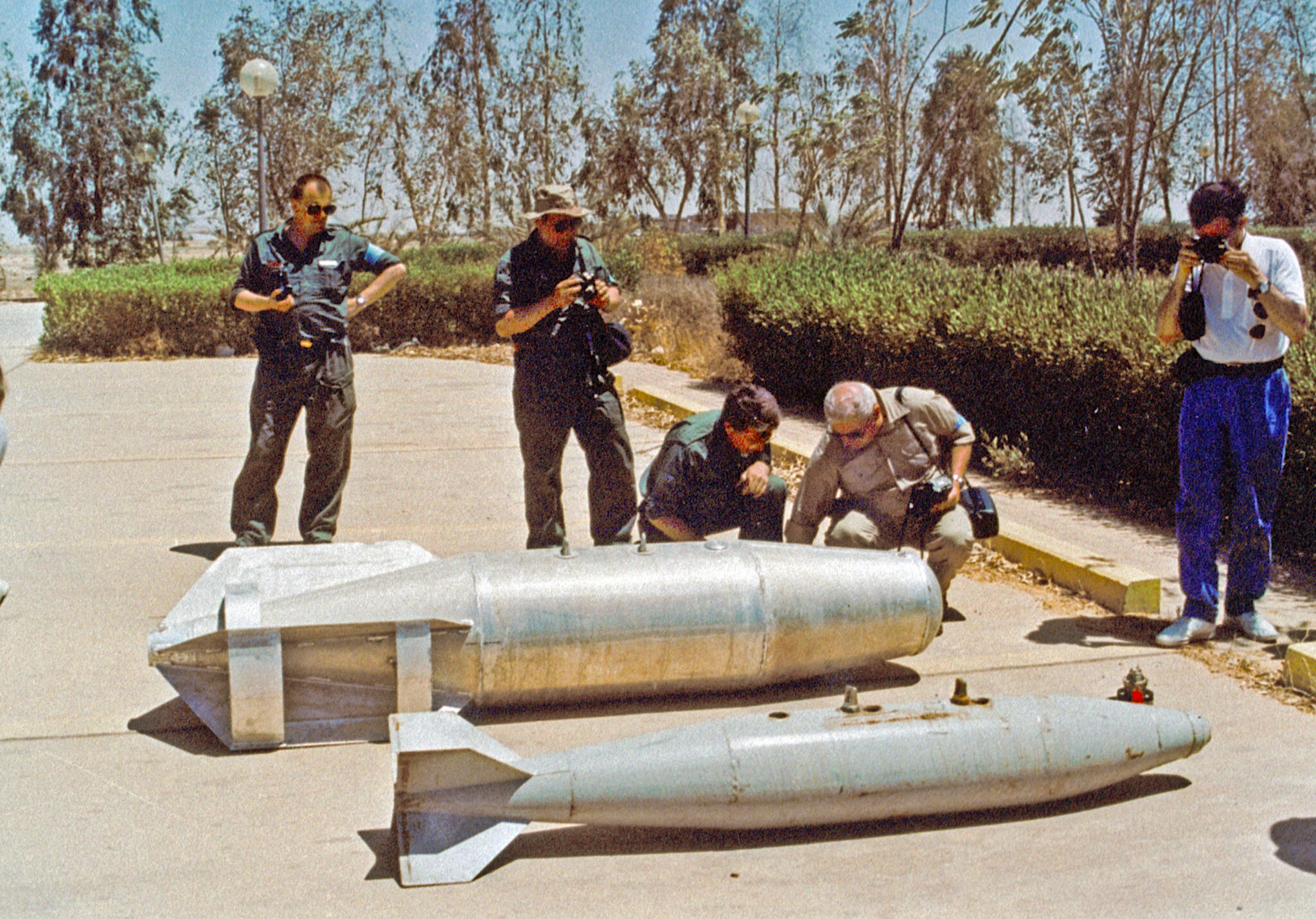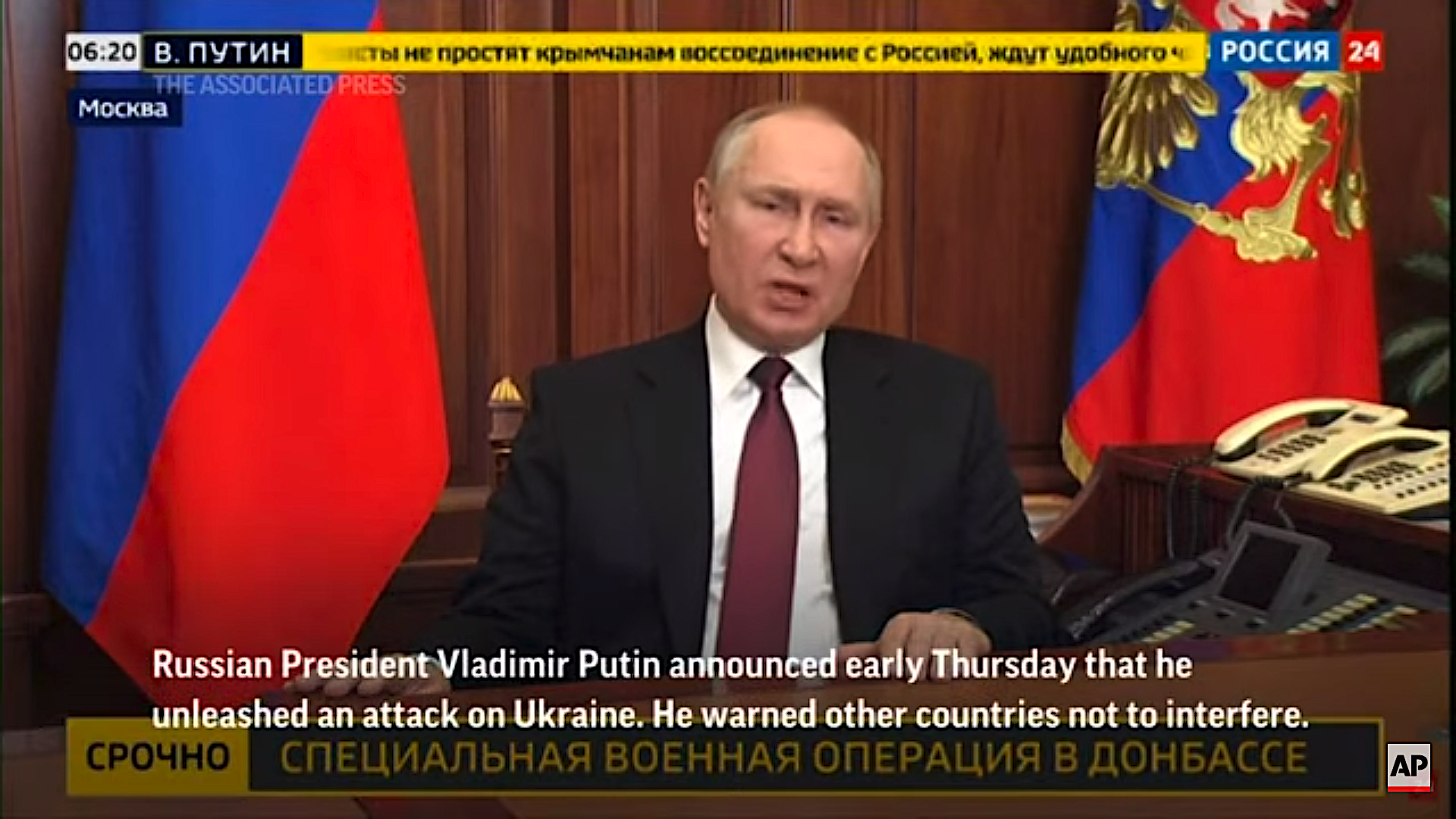Washington Helped Trigger The Ukraine War
The magnitude of the aggressive moves taken by the Pentagon and CIA are just now becoming apparent.
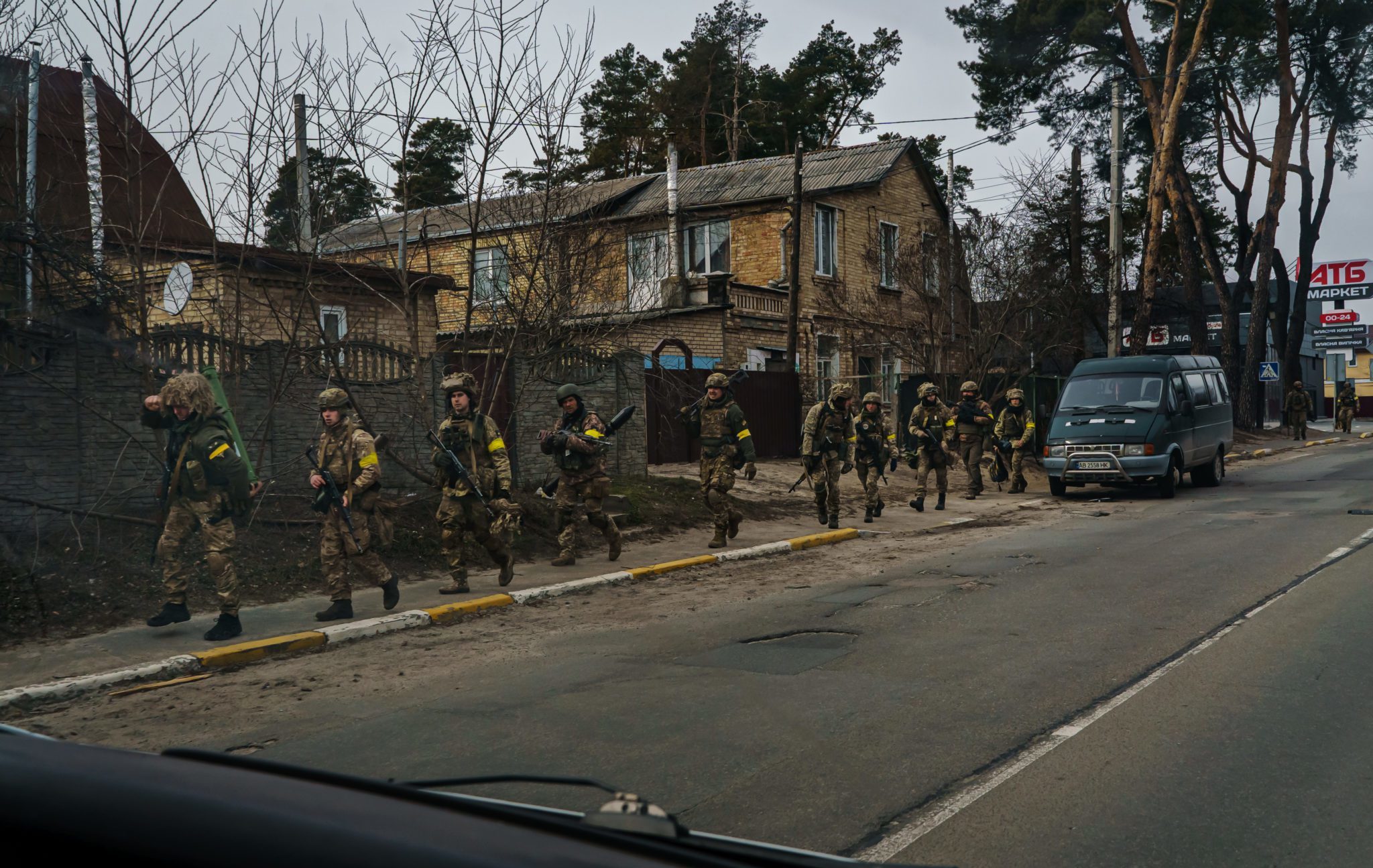
IRPIN, UKRAINE -- MARCH 12, 2022: Ukrainian soldiers march along as the battle between Ukranian and Russian forces continue in the besieged town of Irpin, Ukraine, Saturday, March 12, 2022. (MARCUS YAM / LOS ANGELES TIMES)
MARCH 25, 2022|12:01 AM
TED GALEN CARPENTER
An article by Yahoo national security correspondent Zach Dorfman praising U.S. intelligence agencies for accurately predicting Russia’s full-scale invasion of Ukraine inadvertently highlights the extent of Washington’s military provocations in Ukraine during the period before the outbreak of hostilities. Those measures went well beyond the ill-advised political decision on the part of George Bush’s administration and its successors to push for Ukraine’s admission to NATO.
Earlier warnings from realist scholars that NATO’s eastward expansion to Russia’s border was poisoning relations with Moscow are finally getting attention in the establishment news media and generating a vigorous debate. A few analysts outside the realism and restraint camp even have conceded that trying to gain NATO membership for Ukraine may have been imprudent. But the magnitude of the aggressive moves taken by the Pentagon and CIA are just now becoming apparent.
For years, the Kremlin made it emphatically clear that inviting Ukraine to join NATO would cross a red line that threatened Russia’s vital security interests. However, it was never merely an issue of Kiev’s formal accession to the alliance. Comments from Russian President Vladimir Putin and other officials signaled that the truly intolerable development was Ukraine becoming a NATO military asset and an arena for the deployment of U.S. and NATO forces. That danger could—and ultimately did—arise, even though France and Germany continued to block a formal membership invitation.
Evidence grew in recent years that the United States had begun to treat Ukraine as a NATO ally in all but name. Steps included pouring nearly $3 billion in “security assistance” (primarily weaponry) into the country since 2014. Such armaments included the deadly Javelin anti-tank missiles. Military collaboration also included joint military exercises between U.S. and Ukrainian troops—and between NATO and Ukrainian forces. A segment on National Public Radio in 2019 featured U.S. officials preening about how such measures had strengthened Ukraine’s deterrence capabilities.
In his article, Dorfman documented the extent of other provocative military measures Washington pursued with respect to Ukraine. The CIA “made a series of covert moves that have helped prepare the Ukrainian security services for the current crisis. Shortly after Russia annexed Crimea in 2014, the agency initiated secret paramilitary training programs for Ukrainian special operations personnel in the U.S. and on Ukraine’s former eastern front.” (The eastern front was the Donbas region where Ukrainian forces were attempting to suppress Russian-backed separatist fighters.) Current and former intelligence officials clearly thought that those programs were especially clever initiatives, insisting that they “helped teach forces loyal to Kyiv the skills that have enabled it to mount an unexpectedly fierce resistance to the Russian onslaught.”
An earlier article by Dorfman noted that coordination between the United States and Ukraine on intelligence matters also expanded greatly after 2014 (following U.S. support for the Maidan revolution that overthrew Ukraine’s elected, pro-Russia president and Moscow’s subsequent annexation of Crimea). “U.S. and Ukrainian intelligence have even participated in joint offensive cyber operations against Russian government targets, according to former officials. CIA officials have also regularly traveled to Ukraine on intelligence exchanges, and Ukrainian intelligence officials have made reciprocal visits to the U.S. to swap information.” Dorfman quoted another “former senior official” who asserted that “in many ways the U.S.-Ukraine intelligence relationship “is about as robust” as Washington’s intelligence collaboration with “just about anybody else in Europe.” That last comment implicitly referred to NATO members.
Once again, the United States was treating Ukraine as a full-fledged, albeit still informal, NATO strategic ally. One has to wonder whether U.S. leaders were so arrogant and obtuse that they believed such missions could be pursued without Russia learning about them. If so, it was a serious miscalculation, if not an epic blunder. Conversely, if policymakers in the Obama, Trump, and Biden administrations realized that Moscow would get wind of the intelligence and military collaboration, then they embraced an extraordinarily reckless set of provocations.
Engaging in a mental exercise based on role reversal illustrates the inherent danger of Washington’s policies. How would U.S. leaders (and the American people) react if China or some other major power engaged in ever-growing levels of intelligence and military cooperation with an anti-U.S. government in Canada or Mexico? The answer is rather obvious: Washington would be warning Beijing to back off, and it would be threatening Ottawa or Mexico City with dire consequences if such collaboration continued. It is difficult to explain why U.S. officials and members of the foreign policy elite were unable or unwilling to comprehend that Moscow would have a similar reaction to Washington’s provocations in Ukraine.
Predictably, such conduct ultimately produced a geopolitical explosion. U.S. and NATO officials used Ukraine as a strategic pawn against Russia and are now fuming with outrage at Moscow’s decision to go to war. Russia’s invasion was indeed a horrid overreaction, but it was far from being unprovoked. The Ukrainian people, unfortunately, are the ones paying a high price in blood for the gullibility of their country’s leaders and the shocking arrogance of U.S. leaders.
Ted Galen Carpenter, a senior fellow in defense and foreign policy studies at the Cato Institute and a contributing editor at The American Conservative, is the author of 12 books and more than 950 articles on international affairs.
https://www.theamericanconservative.com ... raine-war/
The shameless old whores got the Dems to do their dirty work again and got the 'plausible deniability' too. Of course the Dems hardly had to be pushed....
*************************************
This is fun, that asshole Saker, a monarchist and anti-communist, only got 'half a glass' from Hudson, who served it with a bitter pill.
**********************************************************The Saker interviews Michael Hudson
17247 ViewsMarch 25, 2022 85 Comments
Following Putin’s announcement about selling gas for Rubles only to hostile nations, I decided to reach out to Michael Hudson and ask him (my level, primitive) questions. Here is our full email exchange:
Andrei: Russia has declared that she will only sell gas to “hostile countries” for Rubles. Which means that to non-hostile countries she will continue to sell in Dollars/Euros. Can these hostile countries still purchase gas from Russia but via third countries?
Michael Hudson: There seem to be two ways for hostile countries to buy Russian gas. One seems to be to use Russian banks that are not banned from SWIFT. The other way would indeed seem to be to go through what looks to develop as a formal or informal third-country bank or exchange. India and China would seem to be the best positioned for this role. U.S. diplomats will be pressing India to impose its own sanctions on Russia, and there is a strong pro-U.S. constituency there. But even Modi sees the obvious superior benefits of benefiting from India’s geopolitical position with Russia and China’s Belt and Road Initiative relative to whatever the U.S. has to
Back in the 1960s the West dealt with the Soviet Union using barter deals. Arranging this barter became a big banking business. Barter is the typical “final stage” of the deterioration of a credit economy into a money economy that breaks down. Over the medium term, a new international financial organization needs to be created as an alternative to the dollarized IMF to handle such intra-bloc transactions in today’s new multipolarizing world.
Andrei: These hostile nations would pay extra for that service, but they would not have to get Rubles. Is that even possible?
Michael Hudson: Presumably Russia would not absorb the added bank costs of avoiding U.S. sanctions. It would simply add them on to the price, after setting the price at which it hopes to end up with – preferably at the original “old” ruble/euro or ruble/dollar exchange rate, not the post-attack depreciated rate.
Andrei: Question: Do you believe that the EU will agree to pay Roubles or will they take the total loss of 40% of their energy?
Michael Hudson: They will pay – or be voted out of office. If they WERE to cut their energy imports from Russia, the distress-price of gas would soar and there would be drastic shortages disrupting the economy. Energy is productivity and GDP. For Russia, of course, this is an opportunity to make the break now instead of later – and leave NATO to take the blame for the interruption of supply. So if I were Russia, I would not be in a hurry to help solve the foreign-payment problem. The same goes for non-oil raw materials, from neon to palladium to titanium, nickel and aluminum.
Andrei: So far, this applies only to natural gas. Do you believe that Russia will extend this to petroleum, wheat and fertilizers and, if yes, what will the effect from this be for the world economy?
Michael Hudson: All Russian exports are affected by these currency controls, because all bank transfers are sanctioned in the way discussed above. Russia has no use for dollars or euros, because these can be grabbed. It needs to have complete control over whatever monetary assets it receives, now that past norms of international law and financial policy no longer apply.
Andrei: Russia has A LOT of natural resources and a lot of technologies/commodities. If she is successful in her efforts to become paid in Rubles, could it be that the Ruble, which would then be a natural resources/ commodities backed currency, could become a major “refuge” currency.
Michael Hudson: I’m not sure what a “refuge” currency is, but the ruble will become a self-standing currency. If its balance of trade and payment improves, the problem may be to keep it from rising. If that happens, the question will be whether a rising ruble would oblige buyers of Russian exports to pay more in their own currency. A new multilateral financial system is in the process of being structured as we’re having this discussion. Will there be speculation? Forward selling? Short squeezes and Soros-type raids? Who will be the participants and under what rules …?
Andrei: How hard a hit would this Russian decision potentially have on the dollar? And MBS negotiating with the PRC for oil sales in Renminbi. Do you think that China and Russia will bring down the Petrodollar and will we see a commodities-backed Ruble and a commodities-backed Yuan replacing the Dollar?
Michael Hudson: The petrodollar will remain between the United States and its allies. But alongside it, there will be the Saudi-yuan and India-yuan arrangements for trade in oil, minerals, industrial products and probably international investment. Trade in these products will be able to occur in a number of currencies, probably on a number of exchanges. It is not clear whether some formal or informal arbitrage may develop between these areas. That is part of what is to be designed. To oversee and regulate the resulting financial and trade arrangements, an alternative to the IMF is needed. The U.S. will not join any organization in which it does not have veto power, so we will see a division of the world into different trading and monetary areas. The result is not so much a conflict as two quite different operating philosophies as the non-U.S. world develops its alternative to financialized neoliberalism.
Andrei: The US has basically stolen Russian gold and foreign currency. The Russians claim that the US has shot itself in the foot and that this will ruin the reputation of the dollar, do you agree with that?
Michael Hudson: Absolutely: Iran after the Shah was overthrown, Afghanistan’s foreign reserves earlier this year, Venezuela’s gold held in the Bank of England, and now Russia. Even timid Germany has asked that airplanes begin flying its gold held in the New York Fed back to Germany!
Andrei: do you think that Russia will retaliate against the US/UK/EU and nationalize/seize their assets in Russia or even in countries friendly to Russia (China?)?
Michael Hudson: Russia is very careful to do everything according to international law – which, of course, has a wide variety of precedents and excuses, and whose courts tend to be dominated by U.S. judges backing U.S. versions of what is legal under whatever it announces to be the “rules-based order of the day” instead of the “rule of law” along UN lines. To the extent that NATO investors abandon their assets in Russia, these may be sold – perhaps at a distress discount – to buyers who promise to maintain the business. Russia might impose severe fines for abandonment, as when landlords abandon buildings causing local expenditures on cleanup costs. Abandonment causes a “public nuisance.”
This would be a cause for immediate confiscation of current taxes, rent payments and salaries or payments for current supplies (including electricity and fuel) are not paid. Think what would happen if the gas bill were not paid and pipes froze and flooded a property. There is an entire world of penalties that could be applied.
International law provides for some recovery of assets wrongly confiscated – as the U.S. confiscations of Russian-owned reserves and personal property would seem to be. At this point Russia really has nothing to lose. It looks like there is not going to be much Russian-European cross investment for quite some time. Russia finally has given up on its hopes to “turn West” after 1991. It was a dream that turned into a nightmare, and President Putin and Lavrov have expressed their disgust with Europe acting in so uncivilized a matter. So for Russia – and increasingly other countries – NATO Europe and North America are the new barbarians at the gate. Russia is turning
That of course is precisely the aim of U.S. policy – to lock Europe into its own dollarized neoliberal order, blocking any mutual prosperity achieved by trade and investment with Russia or, behind it, with China. It looks like today’s sanctions are permanent for the next few years. So of course Russia needs to keep formerly NATO-owned enterprises operating. Let the NATO investors recover compensation from what the United States has grabbed. (Hint: the U.S. may simply begin to grab China’s or Latin American or near Eastern reserves to pay NATO investors who have lost in Russia. That is the model of using Afghan money to pay victims of Saudi Arabia’s 9/11 attack two decades ago.)
Andrei: finally, what question, if any, did I forget to ask and what would you reply to it?
Michael Hudson: Your questions are about specific problems and solutions. But the overall resolution needs to be system-wide, not patchwork. These specific problems cannot really be solved without a far-reaching institutional restructuring of the international financial system, world trade, a world court, and a UN without US veto power. And such an institutional reformation requires an economic doctrine to provide its basic principles. A New International Economic Order will be constructed on non-neoliberal principles – along the lines of what used to be called socialism, when that was what people expected industrial capitalism to be evolving into.
Andrei: thank you so much for your time and expertise!!
http://thesaker.is/the-saker-interviews ... -hudson-5/
The structure of US spending on Ukraine in 2020
colonelcassad
March 26, 14:40

The structure of the distribution of funds allocated by the United States for the further "Syrianization of Ukraine".
Only 13.4 billion dollars.
6.9 - civil assistance.
3.5 - military supplies
3 - deployment of American troops + intelligence
It is important to understand that this is something that is being done openly, for sure, active work is also going on through the secret funds of the CIA, as was the case in the same Syria.
https://colonelcassad.livejournal.com/7519686.html
Google Translator
***********************************
As Ukraine war enters second month, an end seems nowhere near
The war in Ukraine has caused a massive humanitarian crisis in Europe and exposed several faultlines on the basis of race and geo-strategic calculations across the world, which, if unaddressed, will continue to undermine world peace in the future
March 25, 2022 by Abdul Rahman
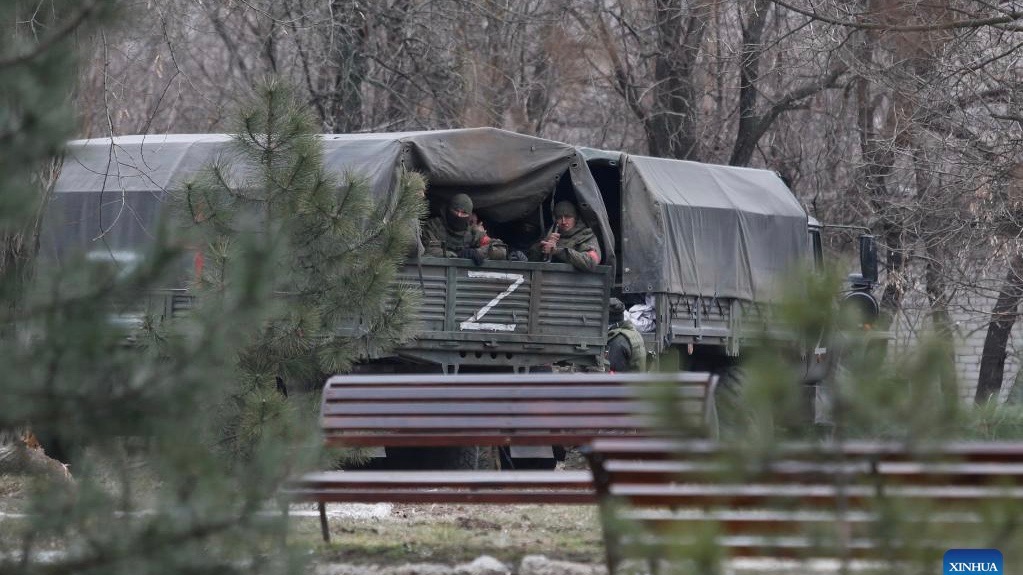
(Photo by Victor/Xinhua)
It has been a month since Russia announced its “special military operation” in Ukraine on February 24 to liberate the self-declared republics of Donetsk and Luhansk in Ukraine and “denazify” them. The war has led to numerous political developments, some of which are unprecedented in world history.
According to the UN, in the one month of the Russian offensive in Ukraine, 1,035 civilians have been killed and 1,650 have been injured. This includes people who have been killed in areas controlled by the rebels in the Donbass region.
However, these numbers are disputed by the Ukrainian authorities who claim that this is a conservative figure and that the actual number of people killed is over 3,000.
The number of armed forces personnel killed on both sides is also uncertain as neither side gives factual data. Ukrainian president Volodymyr Zelensky claimed earlier this month that a total of 1,300 servicemen from his country were killed in action. Russians have claimed that the number was over 2,800. Russia has accepted that around 500 of its forces were killed until the first week of March.
On the other hand, NATO claims that anywhere between 7,000 to 15,000 Russian soldiers have been killed in Ukraine in the first month of the offensive. According to the Ukrainian military, the number is 15,800. However, none of these figures can be confirmed as Russia has not issued the exact number of deaths. Meanwhile, these unconfirmed numbers are being widely used for propaganda.
Both sides have accused each other of violating agreements over humanitarian corridors to provide safe passage to people trapped in war zones, such as in Mariupol and Kiev. The Russian forces have declared a unilateral ceasefire on several occasions to facilitate the evacuation of people from these cities, which has helped thousands of people reach safety. Ukraine has however several times refused to adhere to such concessions.
Mainstream racism and issue of refugees
The West, which refused to accept Russian claims regarding the presence of neo-Nazi groups in Ukraine in the early phases of the war, has gradually accepted their presence but seems to be condoning their activities. Neo-Nazi groups have reportedly been using civilians as human shields against Russian advances at several places. They have also used the war to abuse people from Africa and India by not allowing them to leave the country, and are also responsible for the persecution of Romas and other minority groups. The western media has either ignored these events or called them “Russian propaganda”.
Meanwhile, several individuals, as well as governments across Europe and in the US, have exposed their racist outlook during the course of the war in the last one month. Reporters have compared the victims of war in Europe to the victims of war in Iraq and other places, claiming that Ukrainians deserve attention because they are “blue eyed and [have] blonde hair.” Several government representatives have also made similar utterances.
Numerous reports of double standards when dealing with refugees have emerged as people of a certain color and race are welcomed and others are discriminated against by officials and charity organizations in Ukraine’s neighboring countries. This has forced United Nations High Commissioner of Refugees chief Filippo Grandi and UN Secretary General Antonio Guterres to issue formal statements of condemnation.
As per the UN, more than 3.7 million people have become refugees due to the war and nearly the same amount of people have been internally displaced. Ukrainians who have left the country are mostly taking shelter in neighboring countries in the west and in Russia, with Poland being the largest recipient. EU countries that are receiving Ukrainian refugees despite their hostile approach towards refugees from other parts of the world have been criticized for their double standards. However, some of them are now showing a level of fatigue, claiming that the number of people seeking refuge is overwhelming.
Threat of escalation beyond Ukraine
Even after witnessing the humanitarian crisis and large-scale destruction caused by the war, most western countries have refused to address the core concerns raised by Russia. They have refused to accept that Ukraine will not be a member of NATO, a major security concern for Russia. Last week, Russia had explicitly underlined that it is seeking to establish a “peaceful, neutral and friendly state [in Ukraine]” and peace can be achieved after Ukrainians accept these terms. However, both Zelensky and NATO members have refused to make any assurances.
Instead, NATO members, including the US, have taken steps to further provoke Russia. US president Joe Biden, who is attending a meeting of EU leaders in Brussels, is planning to visit the Ukrainian border. He has also called Russian president Vladimir Putin a “war criminal” and vowed to increase military and financial aid to Ukraine to face the Russian threat.
War by other means
While NATO has denied Zelensky’s repeated calls for a “no-fly zone” over Ukraine, it has announced increased military deployment in Russia’s western borders and assured military support to Ukraine, provoking Russia to issue warnings. Several EU countries have supplied weapons to Ukraine as well.
Russian banks and businesses have been subjected to multiple rounds of sanctions and illegal acts of property seizures by European states and the US and its allies, such as Japan and Australia. These sanctions will cause hardships for common Russians. Meanwhile, fuel prices have risen manifold in the last week after the US and some other countries announced sanctions over energy supplies from Russia. The EU has also vowed to reduce its dependence on Russian gas and oil.
Several western companies such as Apple, McDonalds, and others have stopped doing business in Russia. The Russian sports and cultural industry is facing several boycott measures, which Russians have called a display of double standards by the West as no such measures were ever taken to denounce the wars waged by the US and NATO in the past.
Additionally, despite their claims of being the champions of freedom of speech and expression, the EU and several other countries have issued an unprecedented ban on Russian TV channels and news portals, such as RT and Sputnik, claiming that they are spreading Russian propaganda. The move has been supported by online platforms such as Google, YouTube and Meta, which owns Facebook and Instagram, among others.
Role of the international community beyond NATO
The UN General Assembly has adopted two resolutions condemning Russia so far. The first was adopted in a special session of the general assembly on March 2. On March 24, a second resolution was supported by 140 countries. It was opposed by five countries including Russia and Ukraine, and 38 countries abstained including China and India.
The countries that abstained from voting on these resolutions have demanded NATO to listen to Russian concerns and cease its provocative acts in Eastern Europe for the sake of world peace.
https://peoplesdispatch.org/2022/03/25/ ... here-near/
******************************
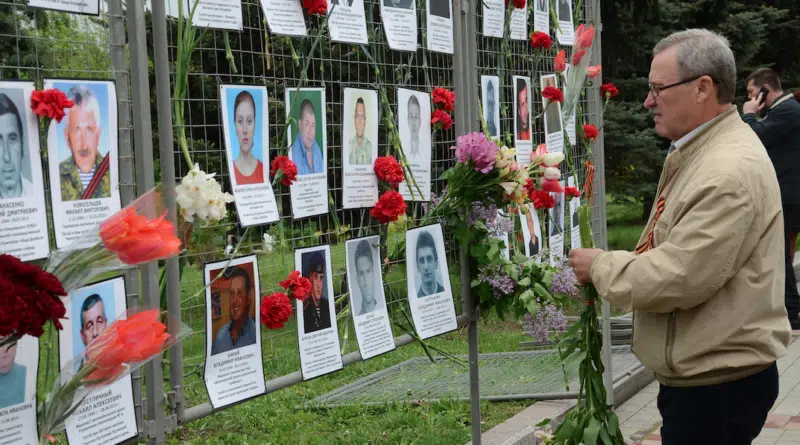
Ukraine’s ‘Agency’ the CIA Kind
March 25, 2022
By Caitlin Johnstone – Mar 22, 2022
“You’re denying the agency of Ukrainians!”
This is a line you’ve probably had bleated at you by propagandized empire livestock if you’ve engaged in online debate about the role Western powers have played in paving the way to this war.
One of the many, many tricks that imperial spinmeisters have pulled out of their hats in their shockingly frenetic campaign to manage the narrative about what’s happening in Ukraine is to insist that it’s outrageous and disgusting to suggest that Ukraine is being used as a sacrificial pawn in the grand chessboard maneuverings of the U.S.-centralized empire, because it is denying the “agency” of that nation. The argument is that Ukraine freely chose to enter into the situation in which it now finds itself, with no outside pressure or influence of any kind whatsoever.
Seemingly overnight it became not just wrong to say that the U.S. hegemon has played a role in giving rise to this war, but actually monstrous and evil. My online notifications are currently flooded with furious empire apologists screaming at me for assigning any degree of responsibility in this conflict to Western power structures with the kind of vitriol people normally reserve for Holocaust deniers or pedophelia advocates.
Imperial narrative managers have even been working overtime to make the word “westsplaining” happen, which is their progressive-sounding term for when one makes the self-evident observation that Western powers influence world events. Mainstream Westerners are actively trained to regurgitate lines like “Stop westsplaining to Ukrainians about coups and proxy conflicts! You’re denying their agency!”
Calling this a “proxy war” between Russia and the United States or calling Kyiv a “puppet regime” of Washington is strictly taboo now. That Ukraine has lacked independent agency in this war and the events leading up to it is something you are simply not allowed to say.
Well, I’m saying it. This is a proxy war. Kyiv is a puppet regime. Ukraine does not have independent agency in any meaningful way. This is not the fault of the Ukrainian people, who are obviously far and away the greatest victims of the Russian invasion, but of the giant Western power structure which deliberately worked to take away the nation’s agency many years before the invasion took place.
I mean, my god. The U.S. and its allies are pouring billions of dollars’ worth of weapons into Ukraine from around the world, the C.I.A. has been training Ukrainians to kill Russians, the U.S. intelligence cartel is directly sharing military intelligence with Kiev as we speak, and this follows U.S.-backed coups in Ukraine in 2014 and in 2004 before that.
This is a proxy war. This is exactly the thing that a proxy war is. The only “agency” Ukraine has is the Central Intelligence kind.
In an excellent article for Multipolarista titled “Ukrainian leftist criticizes Western war drive with Russia: US is using Ukraine as ‘cannon fodder’“, Ukrainian-American Yuliy Dubovyk writes the following:
“Like any other US puppet regime, Ukraine doesn’t have any real independence. Kiev has been actively pushed to confront Russia by every US administration, against the will of the majority of Ukrainian people.
…
The support for Ukraine that fills the Western media now is not out of real solidarity with the people of Ukraine. If that were the case, the US wouldn’t have overthrown our government twice in a decade; it wouldn’t have supported the policies that made us the poorest country in Europe; it wouldn’t have fueled a brutal civil war for the past eight years.
The reason US media outlets and politicians are all backing Ukraine now is because they want to use the Ukrainian military and civilian population as cannon fodder in a proxy war with a political adversary.”
Yes indeedy. Amid all the phony profile pic activism and concern trolling about denial of Ukraine’s “agency,” no concern whatsoever has been shown for actual, known assaults on Ukrainian independence by the US-centralized empire.
Where was all this reverence for Ukraine’s “agency” in 2004, when The Guardian was reporting that “while the gains of the orange-bedecked ‘chestnut revolution’ are Ukraine’s, the campaign is an American creation, a sophisticated and brilliantly conceived exercise in western branding and mass marketing that, in four countries in four years, has been used to try to salvage rigged elections and topple unsavoury regimes?”
Where was the respect for Ukraine’s “agency” in 2014, when a leaked phone call between Victoria Nuland (now working on Ukraine under the Biden administration) and U.S. Ambassador to Ukraine Geoffrey Pyatt exposed U.S. officials casually discussing who they were going to select as Ukraine’s next prime minister following a U.S.-backed coup in Kiev?
Where was all this respect for Ukraine’s “agency” in 2018, when Joe Biden openly boasted before the Council on Foreign Relations that he had used his power as Obama’s vice president to brazenly interfere in Ukraine’s judicial system?
The U.S. power alliance does not care about Ukraine’s sovereignty beyond the measures it thinks needs to be taken to actively subvert it. When people object to criticisms of the way the empire has actively robbed Ukrainians of any real agency, what they are actually doing is defending the most powerful empire that has ever existed from attempts to highlight its malfeasance.
I’m not just spouting off about a far-away nation from my safe home here in Australia, for the record. This is a dynamic which affects my country directly, and is very likely to affect it a lot more as the empire’s “great power competition” with China heats up.
It is very likely that in the not-too-distant future, Australia will end up playing a crucial role in the empire’s grand chessboard maneuverings to stop the rise of China. When that occurs, I will most certainly be saying that we are being used as pawns in a proxy conflict, and I will most certainly be saying that our agency in this matter has been stolen from us.
As in Ukraine, there have been U.S.-backed coups in Australia not once but twice. This nation is now functionally little more than a U.S. military and intelligence base with a smattering of suburbs and kangaroos, which is why the puppet regime in our capital Canberra has done nothing whatsoever to end Washington’s brutal persecution of Australian journalist Julian Assange.
John Mearsheimer, now the subject of great controversy for his completely accurate predictions years ago that U.S. and NATO actions would lead to this exact war in Ukraine, told an Australian think tank in 2019 that the U.S. will destroy Australia if Canberra doesn’t align with imperial agendas against Beijing. And he was right.
And yes, just as there are Ukrainians supporting the imperial line against Moscow, when the time comes for Australia to make great sacrifices for U.S. unipolarist agendas against the Chinese government there will absolutely be Australians supporting it.
Because of a massive propaganda campaign in this nation facilitated by our Murdoch-dominated press and imperial narrative management operations like the empire-funded Australian Strategic Policy Institute, there are many Australians who intensely despise China right now. I know. I’ve met them.
But that won’t mean our sovereignty wasn’t robbed from us, by mass-scale oligarchic psyops, by C.I.A. coups, by secret deals, by the threat of knowing we’d be immediately attacked by a murderous empire if we tried to pivot to Beijing or even to simply espouse a neutral posture. What’s true of Ukraine is also true of Australia: we have no meaningful agency in the most important decisions made by this nation.
Denying the western role in subverting Ukrainian sovereignty doesn’t benefit ordinary Ukrainians, it hurts them. You can’t fix a problem you don’t understand, and until there’s widespread understanding of the way the U.S. empire uses proxies to advance its agendas of global domination, nothing can be done to stop these ugly proxy wars from happening.
Featured image: May 9, 2015: Casualties of the War in Donbass. (Andrew Butko, CC BY-SA 3.0, Wikimedia Commons)
https://orinocotribune.com/ukraines-age ... -cia-kind/


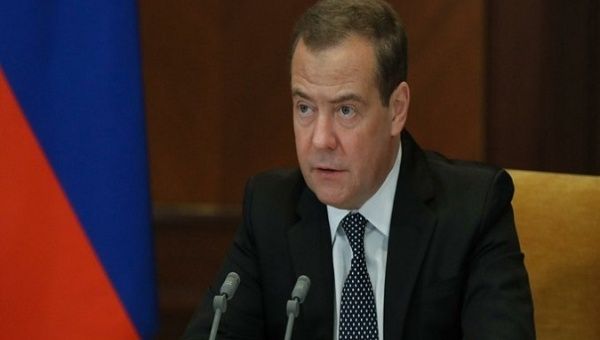


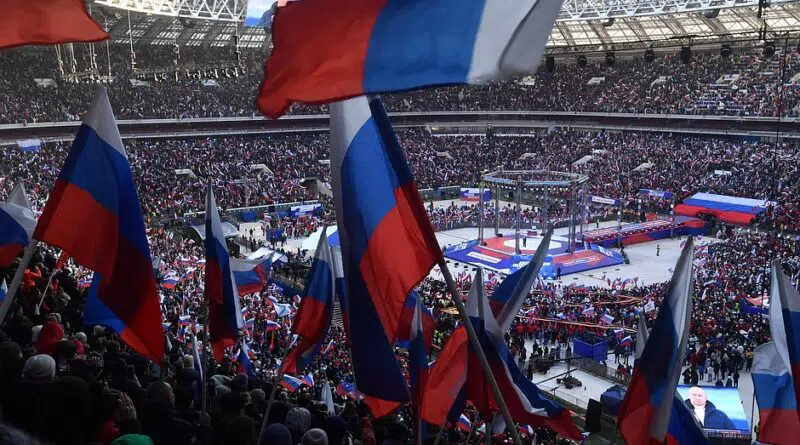
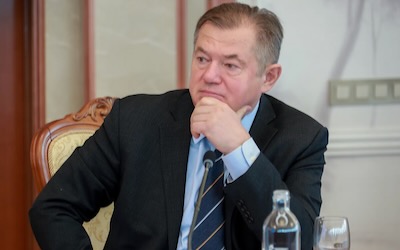
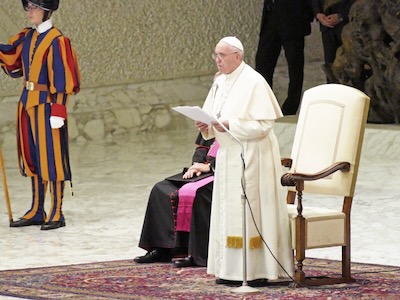


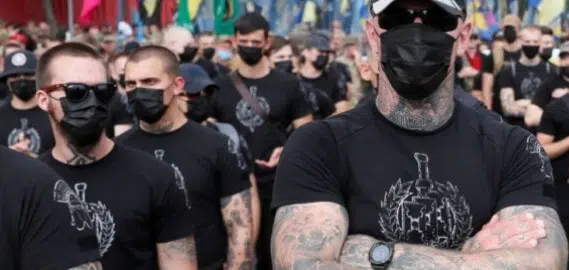

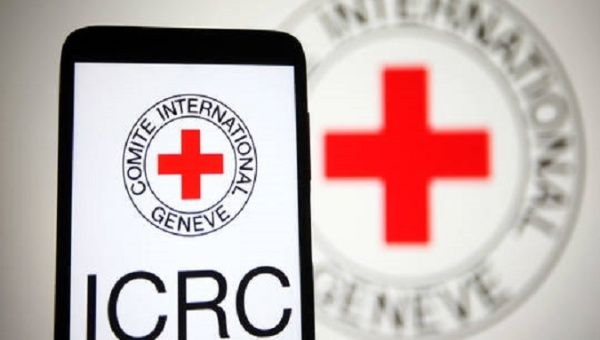

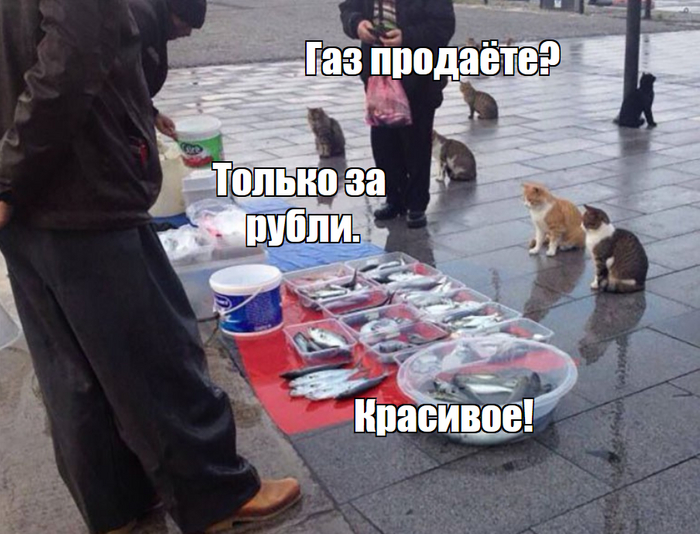


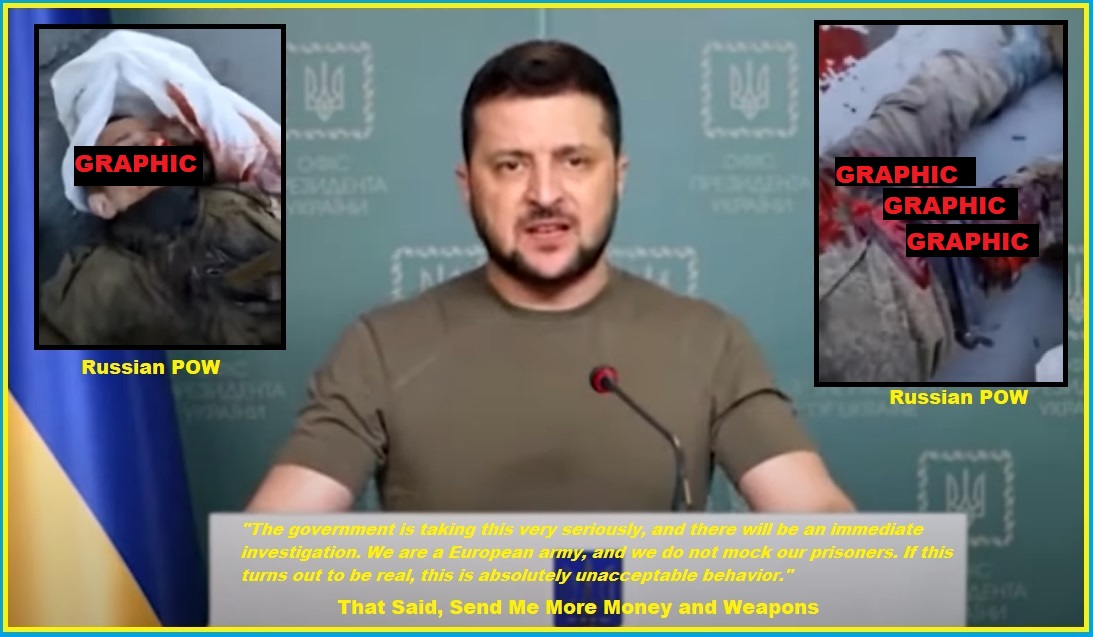


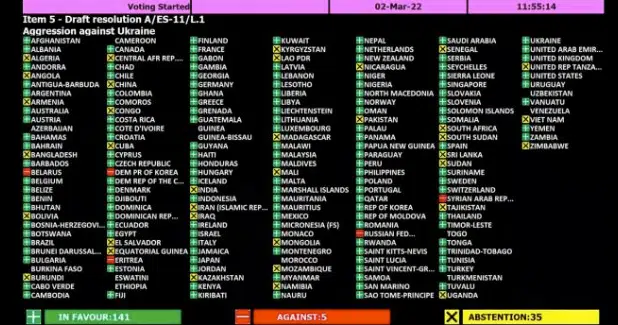
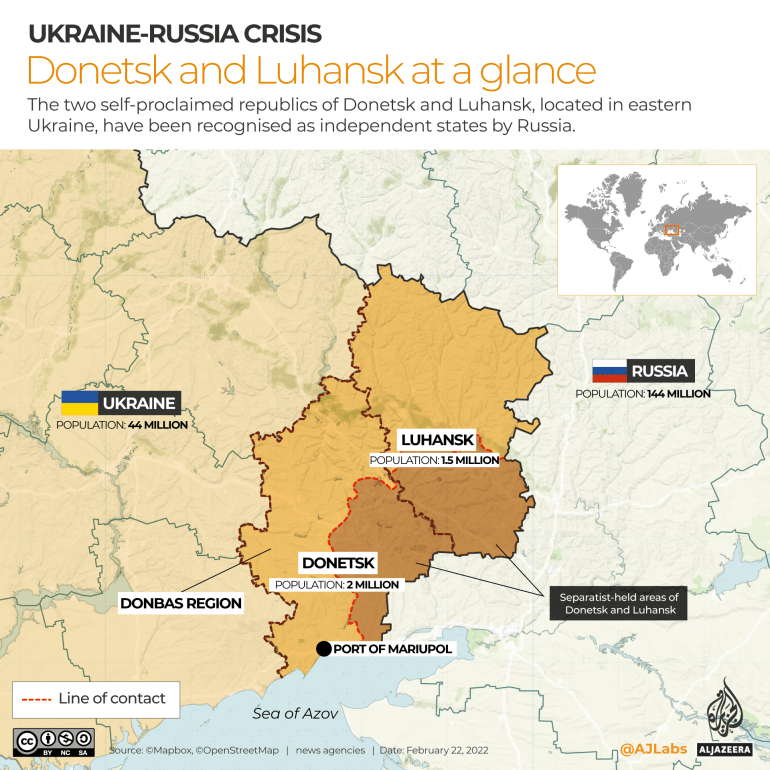
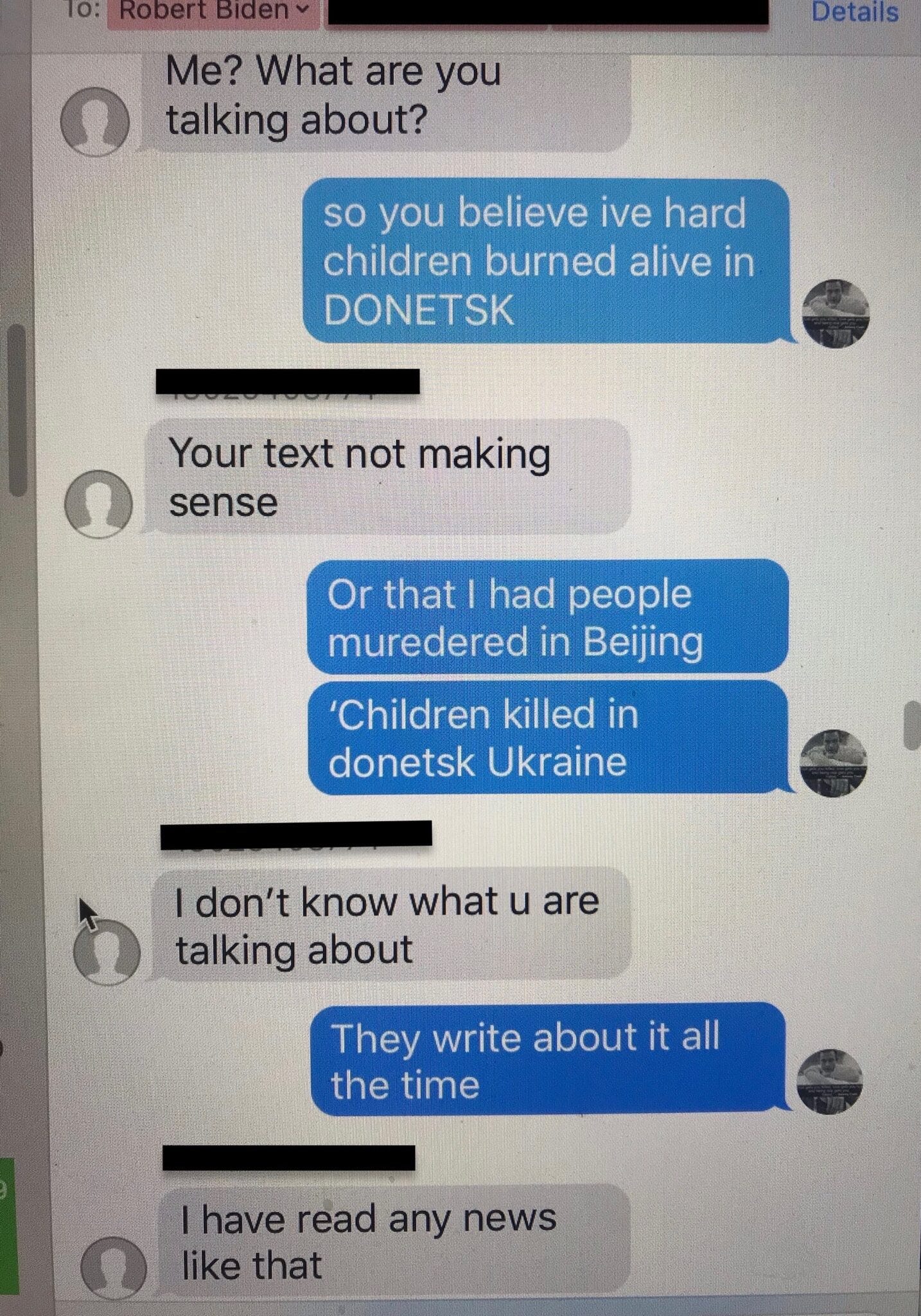



 b]
b]










